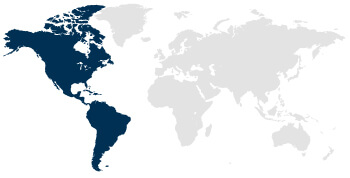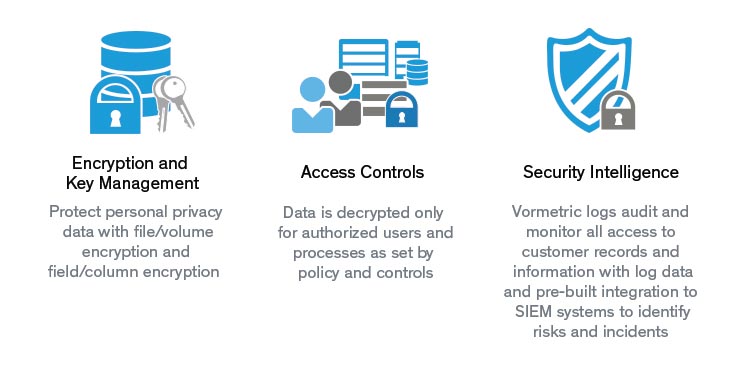SOX

The Sarbanes-Oxley Act (SOX) regulates financial reporting and auditing of publicly traded companies. The law establishes strict requirements for reporting, disclosure, and internal controls and defines penalties for non-compliance. The SOX Act forms a structure for corporate governance, establishing higher levels of fiscal accountability for U.S. businesses. Company officers could face criminal litigation and penalties if found to be non-compliant.
Sections 302 and 304 of the Sarbanes-Oxley (SOX) Act set standards related to data protection, applying to US public companies and accounting firms.
Thales can help organizations meet Sarbanes-Oxley (SOX) compliance requirements through:
- Encryption and key management
- Access controls
- Security intelligence

- Regulation
- Compliance
Sarbanes-Oxley Act: Section 404
Sarbanes-Oxley Act section 404 has two major compliance requirements:
- Management is accountable for establishing and maintaining internal controls and procedures that enable accurate financial reporting, and assessing this posture every fiscal year in an internal control report.
- Public accounting firms that prepare or issue yearly audits must attest to, and report on, this yearly assessment by management.
Sarbanes-Oxley Act: Section 302
Sarbanes-Oxley Act section 302 expands this with compliance requirements to:
- List all deficiencies in internal controls and information, as well as report any fraud involving internal employees.
- Detail significant changes in internal controls, or factors that could have a negative impact on internal controls.
Implications
The SOX compliance requirement implications for public companies to protect data are:
- Any financial information needs to be safeguarded, and its integrity assured.
- Specific internal security controls need to be identified that protect this data, auditing must take place, and this security posture re-assessed every year – including any changes or deficiencies as a result of changing conditions.
The Vormetric Data Security Platform from Thales
Thales provides key portions of the solution to Sarbanes-Oxley (SOX) compliance problems, providing security controls that enable organizations to safeguard and audit the integrity of financial data across widespread heterogeneous infrastructures. These portions of SOX compliance solutions include virtualized environments and cloud implementations, with big data usage as well as within traditional data centers against a broad range of threats against data.
An Integrated Thales Solution that Addresses Multiple Needs
The combination of encryption, integrated key management and access controls meets the needs for creating and maintaining access controls to financial data. Only authorized personnel and programs see decrypted information, while all others have no access to the data. Security intelligence information from Thales details who accesses data, leaving a clear audit trail. This enables extended security controls for recognizing compromised accounts. This single platform solution to multiple data protection needs helps organizations meet Sarbanes-Oxley compliance requirements with low TCO and an easy-to-deploy, centrally managed infrastructure and solution set.
SafeNet Multi-Factor Authentication
Thales’ SafeNet multi-factor authentication secures access to corporate networks, protecting the identities of users, and ensuring that a user is who he or she claims to be.
Vormetric Transparent Encryption
Vormetric Transparent Encryption from Thales provides file and volume level data-at-rest encryption and integrated, secure key management with a best practices implementation. Access controls extend protection from data breaches by limiting data access to only authorized personnel and programs. And data access monitoring provides the security intelligence information required to identify accounts that may represent a threat because of a malicious insider, or a compromise of account credentials by malware.
SafeNet High-Speed Encryptors
SafeNet FIPS-certified network encryption devices from Thales offer proven high-assurance network security for your sensitive data in motion, including real-time video and voice.
Vormetric Application Encryption
Vormetric Application Encryption from Thales adds another layer of protection, enabling organizations to easily build encryption capabilities into internal applications at the field and column level.
Vormetric Key Management
Vormetric Key Management from Thales enables centralized management of encryption keys for other environments and devices including KMIP compatible hardware, Oracle and SQL Server TDE master keys and digital certificates.
Thales Hardware Security Modules (HSMs)
Thales Hardware Security Modules (HSMs) provide reliable protection for transactions, identities, and applications by securing cryptographic keys and provisioning encryption, decryption, authentication, and digital signing services.
Altre norme fondamentali sulla protezione dei dati e sulla sicurezza
RGPD

REGOLAMENTO
ACTIVA ORA
Forse lo standard sulla privacy dei dati più completo fino ad oggi, il GDPR interessa qualsiasi organizzazione che elabora i dati personali dei cittadini dell'UE, indipendentemente da dove ha sede l'organizzazione.
PCI DSS

MANDATO
ACTIVA ORA
Qualsiasi organizzazione che svolge un ruolo nell'elaborazione dei pagamenti con carta di credito e debito deve rispettare i severi requisiti di conformità PCI DSS per l'elaborazione, l'archiviazione e la trasmissione dei dati dell'account.
Leggi sulla notifica delle violazioni dei dati

REGOLAMENTO
ACTIVA ORA
I requisiti di notifica della violazione dei dati a seguito della perdita di informazioni personali sono stati adottati dalle nazioni in tutto il mondo. Variano in base alla giurisdizione, ma includono quasi universalmente una clausola di "approdo sicuro".



